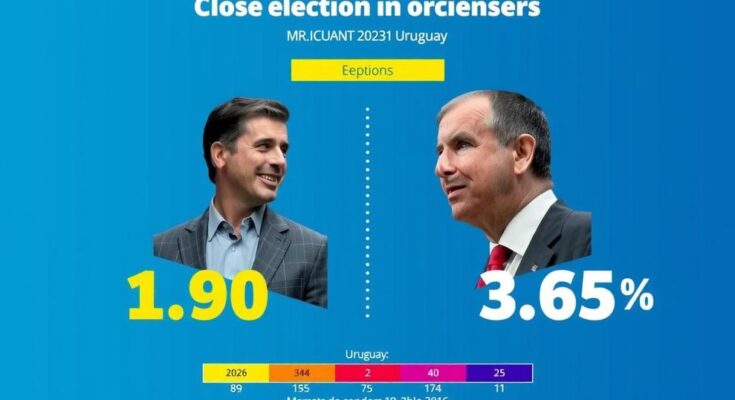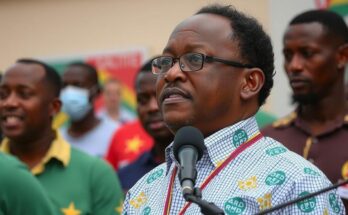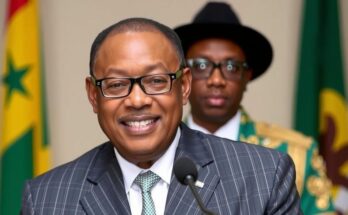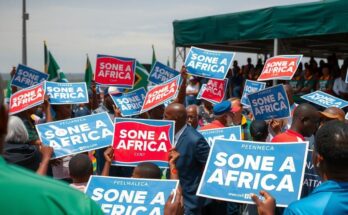Yamandú Orsi of the center-left Broad Front has won the presidential runoff against the outgoing conservative candidate, Álvaro Delgado. This transition marks a potential return to progressive governance after a brief conservative term. Voter dissatisfaction with economic stagnation and rising crime rates fueled Orsi’s victory, reflecting a broader global trend of rejecting incumbent parties. Both candidates emphasized unity and cooperation amid the electoral contest.
In a closely contested presidential runoff, Álvaro Delgado, the conservative candidate from the governing coalition of Uruguay, conceded defeat to the center-left challenger, Yamandú Orsi. Despite ongoing vote counting, Delgado acknowledged Orsi’s success, stating, “with sadness, but without guilt, we can congratulate the winner.” With more than half of the ballots counted, Orsi led with 784,523 votes against Delgado’s 771,434. Orsi, a former history teacher and two-term mayor, is a member of the Broad Front, a political party recognized for its progressive policies during its previous 15 years in power. His election indicates a shift in Uruguay’s political landscape, marking the end of a brief right-leaning government that began in 2020.
Orsi’s win reflects a broader global trend where incumbent parties face backlash from voters dissatisfied with post-pandemic economic conditions. However, Orsi has presented himself as a moderate, favoring cooperation with his predecessor on key issues such as poverty and crime reduction. His campaign offers a blend of traditional Broad Front policies that include both market-friendly reforms and social programs to address urgent national challenges.
The electoral environment revealed significant voter frustration as concerns about slow economic growth and rising crime rates emerged, contributing to the incumbent party’s defeat. The election was characterized by a lack of enthusiasm and decision-making among voters, with numerous polls indicating a tight race leading up to the final results. This scenario highlights the increasingly competitive nature of Uruguay’s political landscape and the electorate’s desire for change.
The outgoing President, Luis Lacalle Pou, promptly congratulated Orsi and indicated his willingness to ensure a smooth transition. Moreover, Uruguay’s political stability and ability to uphold democratic traditions amidst shifting political tides were acknowledged by notable figures, including former President José Mujica, who marked the importance of respectful politics in the nation. The implications of Orsi’s victory suggest a potential return to the progressive reforms championed by the Broad Front in previous years, fostering optimism among many voters regarding improvements in working conditions and social welfare.
As the nation prepares for this transition, the focus will be on how Orsi navigates the complexities of his leadership role and addresses pressing concerns facing the Uruguayan populace.
Uruguay’s political history has been marked by relative stability, with the Broad Front significantly shaping the socio-political landscape from 2005 to 2020 through progressive reforms. These changes included the legalization of abortion, same-sex marriage, and marijuana sales, drawing international recognition. The recent election occurred against a backdrop of dissatisfaction with economic performance and rising crime rates, reflecting broader global voter trends favoring change in leadership amid economic challenges.
Yamandú Orsi’s victory in the presidential runoff signifies a critical shift in Uruguay’s political landscape, ending a brief period of conservative governance. His moderate approach and commitment to social welfare resonate with many voters seeking stability and progressive reforms. As political dynamics evolve in response to voters’ economic concerns, the emphasis on unity and cooperation suggests promising prospects for addressing national issues. The transition period will be crucial as Orsi seeks to fulfill the expectations set by his supporters and uphold the democratic values of Uruguay.
Original Source: www.pbs.org




